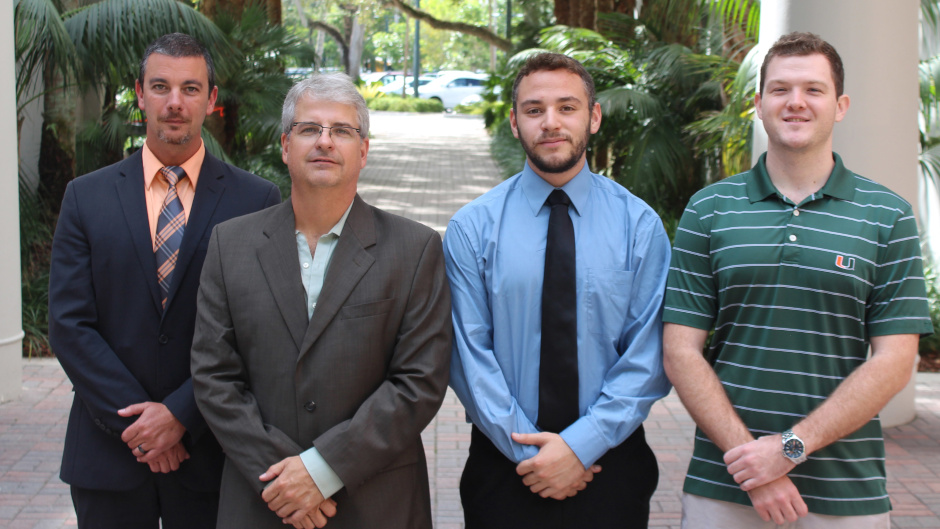It is acknowledged among criminal law practitioners that federal habeas litigation is one of the most difficult areas of practice. Section 28 USC 2254 has spawned some of the most complicated case law and procedure in criminal practice. 3L Innocence Clinic students Cody McCaughan, Jason Ireland, and Jonathan Richter were able to find out just how complicated it is first hand. They drafted a habeas petition for client Jason Clapp that was filed in the United States District Court for the Middle District of Florida. Clapp is serving a life sentence and is seeking federal court relief on numerous grounds including ineffective assistance of counsel.
“Our client was given a life sentence, but his lawyer at trial was severely deficient, and this deprived him of a fair trial,” McCaughan said.
According to Innocence Clinic Director Craig Trocino, “it was a difficult task to deal with the procedural and substantive complexity of federal habeas litigation.” But using what the students learned in the Innocence Clinic along with what they learned in the class Wrongful Convictions Causes and Remedies helped guide their work. “Their dedication was bolstered given the client’s innocence,” he said.
“It was terrifying to see just how little evidence it takes to convict someone,” Ireland said.
Even though the students learned a great deal, they never lost sight of the client they were representing. “Habeas corpus is a complex area of the law and navigating through it while at the same time formulating the arguments we would use to represent our client helped me develop skills that have been a great asset to me in other areas of my legal career,” said McCaughan.
“After a life-time of hearing about the ‘endless appeals process and how the convicted (and their lawyers) abuse the system,” Ireland said, “it was eye-opening to see just how hard it is to get an actual hearing in which you can present actual evidence to an actual judge.”
Richter relished the team environment. “Getting the team all hands on deck was exciting and educational,” he said.
“Having all the pieces come together with everyone’s work and input is always amazing to watch. Students progress from confusion to frustration to that moment of clarity when it all comes together in one cohesive document,” said Trocino. “It was especially satisfying to see everyone work together even under the intense time pressure of federal court filings.”
After filing the petition, the District Court ordered the State to respond and that response is currently being prepared. Although, Clapp’s fate has not yet been determined, the endeavor achieved several of the Innocence Clinic goals including representing those in need, and giving the students a unique learning experience.
“I learned a lot from the experience and made some new friends,” said McCaughan.

